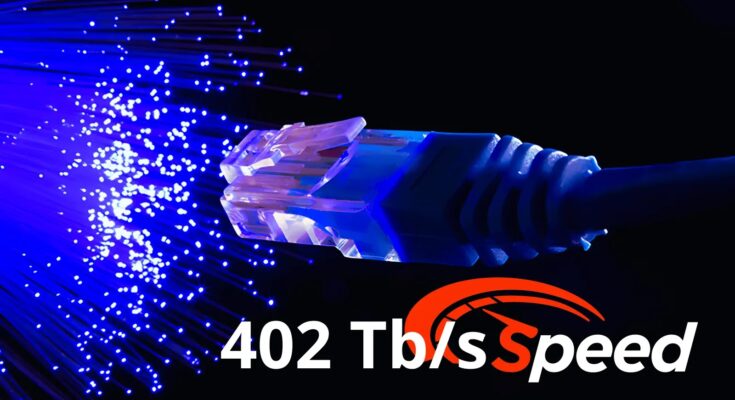In a landmark moment for digital communication, Japan has once again demonstrated its technological prowess by smashing the world record for internet speed. Achieved in March 2024 by Japan’s National Institute of Information and Communications Technology (NICT), this groundbreaking feat saw data transmitted at a jaw-dropping 402 terabits per second (Tbps) using standard optical fiber—the same type used in much of today’s infrastructure.

To put this into perspective, 402 Tbps is over a million times faster than the average home internet speed in many countries. A typical broadband connection delivers speeds in the megabits per second (Mbps) range. At 402 Tbps, you could theoretically download the entire Netflix library in mere seconds or transmit the entire contents of the Library of Congress across the globe almost instantaneously.

This historic breakthrough was presented by network engineer Ben Puttman and builds on Japan’s own previous record of 319 Tbps set in 2021. It also dwarfs the 2020 milestone of 178 Tbps achieved by University College London (UCL). What makes this achievement even more impressive is the use of standard, commercially available fiber-optic cable—suggesting the potential for relatively easy integration into existing infrastructure in the future.

How Did They Do It?
The NICT team achieved this feat using advanced multiplexing techniques. These involve transmitting multiple signals simultaneously across different wavelengths, a method known as wavelength-division multiplexing (WDM). By optimizing how data is encoded and transmitted over each channel, and expanding the usable spectrum of light in the fiber, researchers were able to achieve unprecedented speeds without requiring exotic or impractical hardware.
This technological leap is not just a laboratory stunt. It has real-world implications. Because standard fiber was used, this technology could potentially be rolled out across existing networks, massively upgrading the capacity of the internet without the need for entirely new infrastructure.
Global Context: Where Does the World Stand?
As of now, the fastest widely available internet connection is in the United Arab Emirates (UAE), with an impressive average of 291.85 Mbps. Singapore and Hong Kong are not far behind, offering some of the most advanced internet access in the world.
In contrast, the UK offers up to 1 Gbps in areas with gigabit fiber, but the national average still lags at around 110.99 Mbps. Meanwhile, on the other end of the spectrum, the British Indian Ocean Territory reports a glacial pace of 2.38 Mbps, highlighting the stark global digital divide.
Japan’s record-breaking achievement showcases what the future of internet connectivity could look like: instantaneous cloud computing, ultra-high-definition video streaming, real-time global collaboration, and more. For emerging technologies like autonomous vehicles, remote surgeries, smart cities, and metaverse applications, such speeds could be transformative.
A Glimpse into the Future
While we won’t see 402 Tbps internet in our homes anytime soon, the significance of this milestone cannot be overstated. It signals a future where such speeds could become the backbone of data centers, scientific research facilities, and intercontinental networks. The potential for reduced latency and higher reliability also makes it a crucial development for future-proofing the internet as global data consumption continues to skyrocket.
As our digital lives become ever more data-intensive, innovations like this push the boundaries of what’s possible. From gaming and video conferencing to AI applications and telemedicine, ultra-high-speed internet will enable experiences that were once the stuff of science fiction.
In summary, Japan’s new internet speed record is not just a headline—it’s a bold declaration of the future. With standard fiber as the foundation, and a speed record that seems almost unimaginable, we are witnessing the dawn of a new era in global connectivity. As researchers continue to push the limits, the internet of tomorrow promises to be faster, smarter, and more powerful than we ever imagined.



